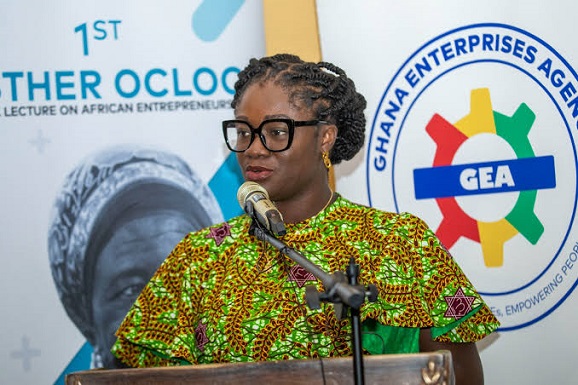The Ghana Enterprises Agency (GEA) has signed a grant award contract with 68 Small and Medium Enterprises (SMEs) to disburse eight million cedis under the second phase of the COVID-19 Response Grant programme.
The programme, under the World Bank Ghana Economic Transformation Project, is expected to spur the economic recovery of SMEs, and provide liquidity and support for Small and Medium Enterprises (SMEs) to enable them to adjust and grow out of the COVID-19 crisis in selected sectors of the economy.
The nationwide grant programme, with an additional grant size of GHC38 million, will focus on SMEs with a strong focus on Ghanaian export and export-oriented firms.
The project in the first phase disbursed GHS28.7 million to more than 370 SMEs between September 2021 to March 2022 with 158 women-owned businesses as beneficiaries.
Beneficiaries of the GEA SME Grant programme have also created a minimum of 134 new permanent and 156 casual jobs within the period.
Speaking at the signing ceremony, Mrs Kosi Yankey-Ayeh, the Chief Executive Officer of GEA, said the goal of the Grant programme was to ensure that businesses were resilient and ready to help transform the economy.
She said the programme was designed to try and strengthen Ghana's economy, build industries, and strengthen the business ecosystem so that it would stand the test of time to deal with any shocks or challenges.
Mrs Yankey-Ayeh said the first phase of the grant programme was a resounding success, adding that a decision was taken to include some sectors such as healthcare and education in the programme.
She said the government’s agenda was to support MSMEs and to also strengthen women-owned businesses.
“In the second phase, we realised the need to include various sectors. Some of those sectors, the healthcare and education sectors we have never supported in the past. But I'm happy that today we're doing this part,” Mrs Yankey-Ayeh added.
The second phase of intervention was targeting about 400 small, and medium enterprises to give them support to sustain and grow their business.
On his part, Mr Michael Okyere Baafi, lauded the positive role the GEA was playing to ensure that young men and women and SMEs grow to a different level.
He said Ghana had signed on to the Ecowas Trade Liberalisation Scheme and the African Continental Free Trade Area, which presented opportunities for Ghanaian businesses to build their capabilities to compete in the African region.
Mr Baafi said the AfFCTA had come as a blessing and allowed businesses to explore Africa well and build potential billionaires.
The Ghana Enterprises Agency (GEA) – an agency under the Ministry of Trade and Industry, is one of the key Technical Implementing Agencies (TIAs) through which the World Bank Funded Ghana Economic Transformation Project (GETP) is deploying grants as part of government’s initiatives to promote private investments and firm growth in non-resource-based sectors.





